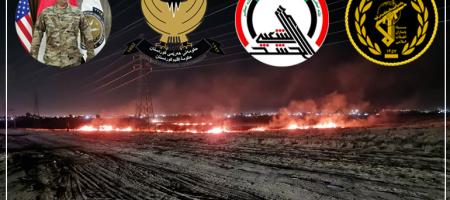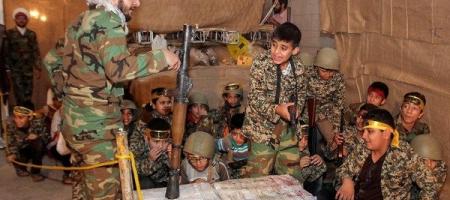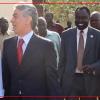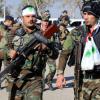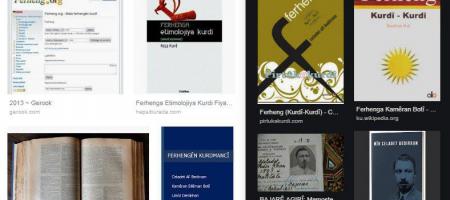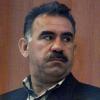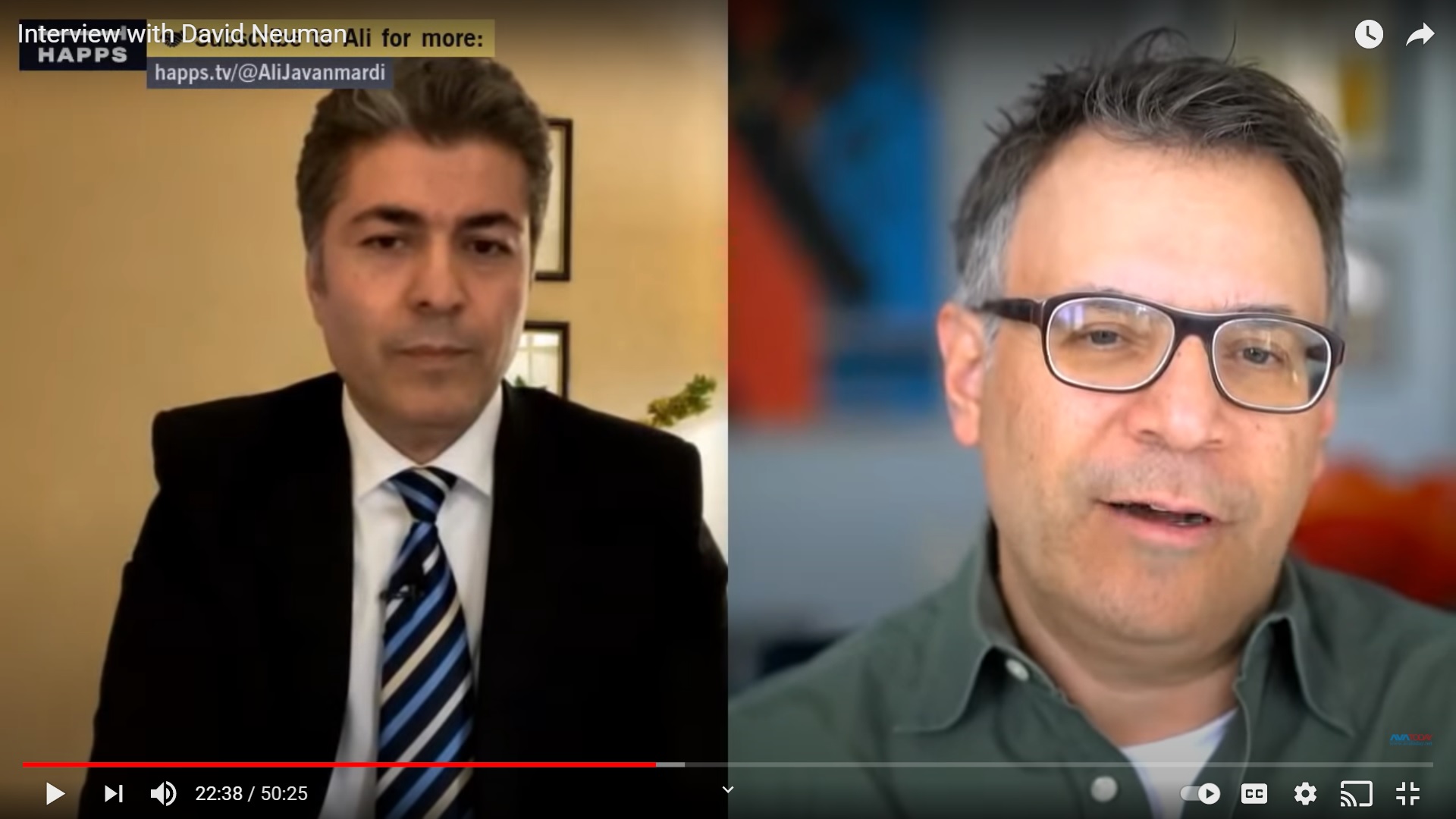
Avatoday’s founder and chief editor, Ali Javanmardi, on Thursday sat with David Neuman, Co-Founder of Happs in a live twitter interview to discuss his professional life, journalism and politics.
Happs is a community of voluntary news curators with thousands of members. This new live-streaming app is empowering journalism on social media.
The following is a written version of Happs’ interview with Javanmardi.
David Neuman: Ali, we’re on! It’s really nice to talk with you today.
Ali Javanmardi: Thank you so much, thank you for having me.
Neuman: Would you like to introduce yourself to the audience and explain what we are going to be doing today?
Ali Javanmardi: Yes. My name is Ali Javanmardi, I was born in Kurdistan of Iran, in 1975 . When I was 17 years old I joined politics. It's a long story if I want to say, in 1994 I fled from Iran and I was 19 years old. I joined Radio Kurdistan of Iran, it was in northern Iraq. Radio Kurdistan of Iran broadcast realities of Iran and Kurdistan at that time, but my career as a journalist started in 1994. From that time until now, over the past especially 16 years, I have developed an extensive network of news sources and I have contacts throughout the Middle East and North Africa, especially journalists and even politicians and leaders. This has helped me have interviews, some various exclusives with many Middle Eastern leaders. I was a correspondent for Radio Free Liberty or Radio Farda in Persian language from 2004 to 2008 for about 5 years. I was a correspondent in Erbil in Kurdistan of Iraq, also in Baghdad, in Ankara Turkey for Radio Free Liberty and then I was anchor person in VOA or Voice of America, and after I became correspondent during ISIS war in Iraq and Syria. I worked with VOA for about 12 years, and several times I was in the frontline in Mosul in the war against ISIS, that’s it maybe. This is enough.
David Neuman: That’s extraordinary, and if my math is correct, you were doing this from age nineteen. What gave you such a passion to do this important and sometimes dangerous work?
Ali Javanmardi: I love my job, but more than this I think my personal mission. This is a kind of mission for me, to establish freedom and democracy, rule of law. I think about a new country, a new system in Iran and this has pushed me to do war for broadcasting the truth and for helping and fighting for freedom and democracy.
David Neuman: Do you think that it’s a dream that could come true in your lifetime and my lifetime for Iran and Iranians?
Ali Javanmardi: I strongly can say yes, yes of course. If not, I can’t work, I can’t fight, without hope we can not.
Neuman: Yes absolutely, tell me why you have that hope and optimism for the cause? Just give me some data points that help me understand why you are in fact hopeful? You know what? Mullahs and religious elements and their establishment have occupied Iran, in the past 42 years and they have taken people’s freedom and their everything actually, by the name of god! I think as a human being I have a duty to fight this injustice, and why? It’s very simple, when I look at other countries they have freedom, they have everything, why don't we have it? We can have it, I think we deserve to have it, our people. That’s why I want to establish a country of law and equality, freedom of religion to observe human rights and secularism. I am impressed by the American constitution and American citizenship and American founders like Jefferson, why can’t we? We can do that and have a good country, a good system in Iran.
David Neuman: Tell me Ali, we have 4 years of the Trump administration and now we have the Biden administration, how does that if at all change the dynamic for what’s happening in Iran? Does it make it more likely or less likely for forces that are fighting for more freedom and liberty to prevail, did things change and if so how?
Ali Javanmardi: Let me say the maximum pressure I think, the maximum pressure by the president Trump administration weakened Islamic Republic of Iran and I think it was very good, that’s why let me explain it; the maximum pressure put the regime financially in a position that they were not able to finance proxies to terrorist groups like Hezbollah, like PMF, like other terrorist groups around the world especially in the Middle East, to my belief the policy of maximum pressure brings the positive response. In the past four decades the policy of appeasement about Iran has now worked, why? They, I mean mullahs became more violent and more aggressive in the region, look, for example you talked about president Biden, okay president Biden spoke softly to accommodate Iran, what was the response I ask, was negative. We see by attack in Erbil and Baghdad and today just today they attacked Aid al-Asaad, an American military base in northern Baghdad, also they have increased the Iranian nuclear enrichment, nuclear uranium and production and other nuclear activities, but I want to say at the same time, I want to tell you that the policy of president Trump was short of pursuing the regime change in Iran. I believe that president Biden right now can correct this shortcoming by pursuing to change the system in Iran, the same thing that Iranian people want to do. President Biden cannot negotiate with the terrorist regime in Tehran to bring stability in the region, in the Middle East, it's impossible, the aim of terrorists cannot change for sure, this is my opinion actually. I do hope that president Biden will now release any funding to this terrorist regime, the only thing they will do with money as we saw before is to support the terrorist groups around the world especially in the Middle East. We have the experience of president Obama, Obama presidency that the money released was spent for terrorists not for people of Iran.
David Neuman: What do you think the likeliest scenario if you could, if you were to advise president Biden on what the United States should and shouldn’t do to try and bring about the change that you are struggling for? What would be your prescription for him? What would you suggest?
Ali Javanmardi: Let me explain by a simple example, for example nuclear issue is very important in Iran and all countries talk about it, nuclear technology can be obtained from the US or any western country but the question is why do they secretly work with North Korea? Because they want to make nuclear weapons. A regime that kills its own people every single day, every single day I tell you, cannot be trusted, cannot be trustable and if they have nuclear weapons what will happen? You can imagine. The regime killed more than 1500 of its own innocent people in just two days in November 2019, two years ago and then they denied it! I mean they lie easily, the western world cannot and must not trust this horrible mind. I think the aim of the Islamic republic of Iran is to obtain nuclear weapons and actually become a country like North Korea for the international scene and after putting its own people in total isolation. In this situation how can president Biden say we want to have negotiations with this regime and make a deal with them? So Iranian people don’t think this deal does work.
David Neuman: So tell me what should Biden do? What should he do?
Ali Javanmardi: This is a good question, I think president Biden can support Iranian people. President Biden can change policy and even president Trump had this policy, for changing behavior in Iran. They had a policy in foreign policy, the same policy we see right now, president Biden tried to make a new deal with Iran. Okay, why for just one time in four decades they don’t test this new policy by name of regime change or support Iranian people, support struggle for freedom inside Iran, support Iranian independent journalists, support freedom of speech in Iran. I mean the US can do that, it can make a change in foreign policy about Iran and it does work better than ever I think.
David Neuman: I follow you, I’m curious about the specifics though, what would be, how could the US president of the US government support the people of Iran? What could he do?
Ali Javanmardi: This is easy, let me explain some David. Western democracy is an ideal for the future of Iran, it’s not my opinion, I think most of Iranian people want to do that. Iran has a young population eager to get freedom, secularism and democracy. If the western world supports the aspiration of Iranian people, Iran will be able to move forward to be a democratic society. I mean Iranian people need moral support. With western moral support Iranians can handle their destiny, with no war with anything, with uh, any dangerous plan.
David Neuman: So it’s moral support and that sort of thing. Now you talked a little bit about the fact that there’s you know, Iran seems to be moving again towards creating a nuclear weapon at least that’s what some of the reports indicate. There’s a lot of speculation that if push comes to shove Israel might take it upon itself to destroy the nuclear facilities or the nuclear bomb making capacity of Iran, do you think that might happen? And if it did happen what do you think would happen in response from Iran?
Ali Javanmardi: About Israel, I do not believe that Israel will attack Iran, let me explain why. I worked here maybe about 20 years, I mean about the Middle East, I know all the countries, I want to explain that the best policy for Israel regarding Iran is a weak and isolated Iranian regime. The only fear Israel has is that Iran will get a nuclear weapon, that’s true but the policies of Iran led Arab countries to establish peace with Israel, the policies of Iran led to weakened Syria Bashaar Assad I mean next enemy neighbor to Israel. But if I say if that were to happen, I believe that to my belief Iran will not be able to react directly against Israel, why? You can see right now, the power of Iran is based in it’s proxies and terrorist groups. Hezbollah, Jihad Islami, PMF and others. They can make missile attacks on Israel that’s true, they can make trouble for Israel. Such an attack by Israel will lead to destruction of the Islamic republic, Iranians who have been suppressed and frustrated by the regime will rise against the mullahs, against the old regime. That’s why Israel attacks IRGC and Iranian practices in Syria every week, maybe there’s about 500 times since 2011 until now, I don’t say that, Israelis have said that, but Iran had not shown any reaction or denied the attack, why because they cannot do anything against Israel directly. Iran is weak inside Iran. Iran’s power is about terrorist groups and proxies outside.
David Neuman: Are you familiar with Ali with the famous text, the famous book called the art of war by one of the ancient Chinese authors, have you ever heard of it?
Ali Javanmardi: I’ve heard that but unfortunately I didn’t
David Neuman: Oh it’s okay I mention it because one of the first principles in that book is they say, this advisor says “When strong act weak when weak act strong” and I think if the mullahs are reading the art of war they’re acting tough because they actually are weak inside so that’s kind of one of observations I have about that.
Ali Javanmardi: The same thing as the Iranian story okay.
David Neuman: Right, Ali tell us, this is a very dangerous line of work you’re in because you know Iran has certainly some power and they’ve certainly launched a vicious campaign against journalists that in any way don’t tow the party line and adhere to the mullahs points of view, how worried are you for yourself to be such an outspoken journalist in conflict with this very vicious regime?
Ali Javanmardi: David I’m under pressure to save my life. That's true and in my associates' lives, Iranian regime has no tolerance for opposition inside and outside the country, especially about journalists, they’re afraid of journalists. They have murdered opposition in and outside the country, I know all these dangers but what can I do. I believe as a human I have a duty I told you to carry on my beliefs, to save my nation from further destruction. This is not just about me. I can say all journalists in Iran, this is the nature of Iranian regime. Journalism has suffered heavily and all Iranian prisons are full of journalists, you can see a lot of names inside the prisons. The independent journalists who are alive today are those who were able to escape Iran. The current laws consider any criticism of the regime or any of its leaders, high crime punishable by flying prison terms and even execution because the regime considers itself a proxy of god. Anyone who criticizes and challenges it, is considered the enemy of god and therefore apostate and punishable by death. I know that but there is no way, I should work without taking risks you cannot do with anything I think.
David Neuman: Right. Do you have any sense of how many journalists today in Iran might be imprisoned or otherwise in captivity because of their attempts to conduct the practice of journalism in Iran?
Ali Javanmardi: More than 100 people, more than a hundred but they don’t say they are journalists. They say they are spies, they are working with Saudi Arabia, with Israel, with America, with the CIA etc...They don’t call them journalists, they say they are spies. More than 100 people right now and thousands of journalists fled from Iran during three years, since 2017 until now, four years.
David Neuman: What do you hear Ali from people, you must have sources inside Iran who are close I’d presume to the government. What do they say about what’s happening inside? What’s being talked about in those, are the mullahs worried? Are there any interesting hopeful indications that there may be efforts to make it? To lessen restrictions and create more freedom or is it the opposite? What are you hearing from inside the regime?
Ali Javanmardi: You know all depend on each other, inside the regime I told you they are weak right now that’s why they try to make terroristic operations outside, one day attack against US base, against Saudi Arabia, against other countries but at all I think after president Trump, people of Iran have no good moral, but they thought president Trump tried to make a change in policy about Iran, I didn’t believe that, never, but this is what most of Iranians thought. They thought that if republicans came to power in the US it would be good for them. I cannot say Iranian people right now by themselves can make any change, I think they need help.
David Neuman: And tell me what if you can, tell me what stories you’re working on now that you think are most interesting and important for the world to know about this ongoing situation?
Ali Javanmardi: We have a network by the name of AvaToday, we try to and we have been able to train and set up the largest network of independent volunteers, stringers inside Iran. We try to expand it and in this situation we try to make something new about broadcasting news inside Iran and like always we published that we need support towards training of independent journalists, would be helpful for us. Right now we’re working like before, broadcasting news every day at this situation especially when the regime has very bad and strong censorship and we try to broadcast the truth for Iranian people.
David Neuman: What can be done to support more quality journalism like the journalism you’re doing, about Iran?
Ali Javanmardi: I think any support towards training independent journalists would be helpful for inside Iran. Because we have no independent journalist inside Iran, the regime arrests them, it tries to kill them, tries to suppress them. That’s why at this situation, as far as journalist activity out of Iran there are many individuals and organizations actively reporting on Iran, but inside Iran we are poor, we try to expand this citizen journalism inside Iran and because the regime considers a few individuals, journalists real threats and has actively pursued them abroad and threatened their lives. That’s why we try to make a network of citizen journalism inside Iran, by simple people train them and all will be under the radar, because you know this is against law by the regime.
David Neuman: Right. What has been the effect of the killing of the journalist? I'm sorry I have his name right handy but the Saudi journalist who was writing in opposition of Saudi regime, was killed in Turkey. What was the effect of- Javanmardi: Khashoggi.
David Neuman: Yes yes. What was the effect of that killing on these journalistic efforts if any?
Ali Javanmardi: If you say Khashoggi in the world, maybe not in our countries or in the Middle East, maybe everyone knows him. But let me say about him and Saudi Arabia episode, I think it has a different effect on Iranians, why? Scores of Iranian journalists have disappeared, been executed, imprisoned or had to flee the country for their lives, not just in Iran, Iran is the huge prison for journalists. Over 30 journalists have had a similar fate. The same story in the rest of the Middle East. Now, the question for the Iranian people, you can see in Social media. What is the difference between the murders by their (Islamic Republic) Regime, and those murders associated with Saudi Arabia. This is their question. I think there is some kind of discriminiation at the news too.
David Neuman: As if their lives are worthless than the Saudi lives, what you are suggesting. I think that is a very interesting point. Do you have any role models for yourself in terms of what you're doing? Are there people who inspired you with the work that you're doing? and if so, who were they?
Ali Javanmardi: You mean for myself? I think I want to establish a news, I don't know how I can do that by the news to make it (Iran) a country of law, equality, freedom of religion, to observe human rights and secularism. I am impressed, I told you by America, I try to create a country like America in Iran. Broadcasting is very important, that's why Iranian regime always tries to censor. By the way, I try to make freedom and democracy for my country.
David Neuman: Was there someone who inspired you, or a journalist before who inspired you? or a leader, I am just wondering about your own inspiration.
Ali Javanmardi: Yes exactly I have this experience, my goal is, I told you, it is different, without any impact from outside, from anybody, anything criticizing, I do my Job, I do my best for this goal. I told you I am under pressure to save my life. my family in Iran is under pressure. They arrested my mom, my mom is 72 years old. She's sick and unfortunately she is under Pressure. With all these bad situations I do my best in my Job.
David Nueman: Well it's enormously important work. And one of the reasons to conduct this interview was that I admire what you're doing. Everybody who believes in freedom of press and freedom of speech, and the freeful and trueful information should support you and all the people who are trying to do what you are trying to do. We built this platform Happs, because we want to empower Ali Jawanmardi to bring these stories to the rest of the world. And we think there has probably been too much game keeping on these stories. And the truth needs to go directly from people who are on the ground who know what's happening and have a kind of connections you have to the rest of the world and we shouldn't be relying on any individual news network or you know or organization to filter that for us and decide what we see and what we don't. If there is one thing that you feel that the rest of the world needs to know about this story, but they don't know or don't understand. What is it?
Ali Javanmardi: That's true, unfortunately nobody inside the US doesn't know or we can say we don't have enough information about Inside Iran. One reason is that the Internet is filtered heavyly in Iran. And all Independent news channels are blocked. And all local newspapers and magazines are heavily censored inside Iran. There is no trustable source Inside Iran. The second thing is, I think Iran has a very strong lobby inside the US for telling the untruth and giving a different perspective from Iran. For example, the regime training groups to kidnap opponents especially journalists from abroad. They just talk about Khashoggi, but let me talk about the same thing and worse than Khashogchi. And every year we have it. As an example, Rohullah Zam, he was my friend. Rohulla was brought to Baghdad from Paris, kidnapped, taken to Iranian embassy in Baghdad and then to Iran, tortured and finally he was sentenced to death and hanged. Only because he revealed the corruption of the Supreme leader and his son. Who knows his name inside the US? I think nobody.
David Nueman: That is a great example. And that is one of the reasons I am so glad you're doing this and reporting what you're doing.


